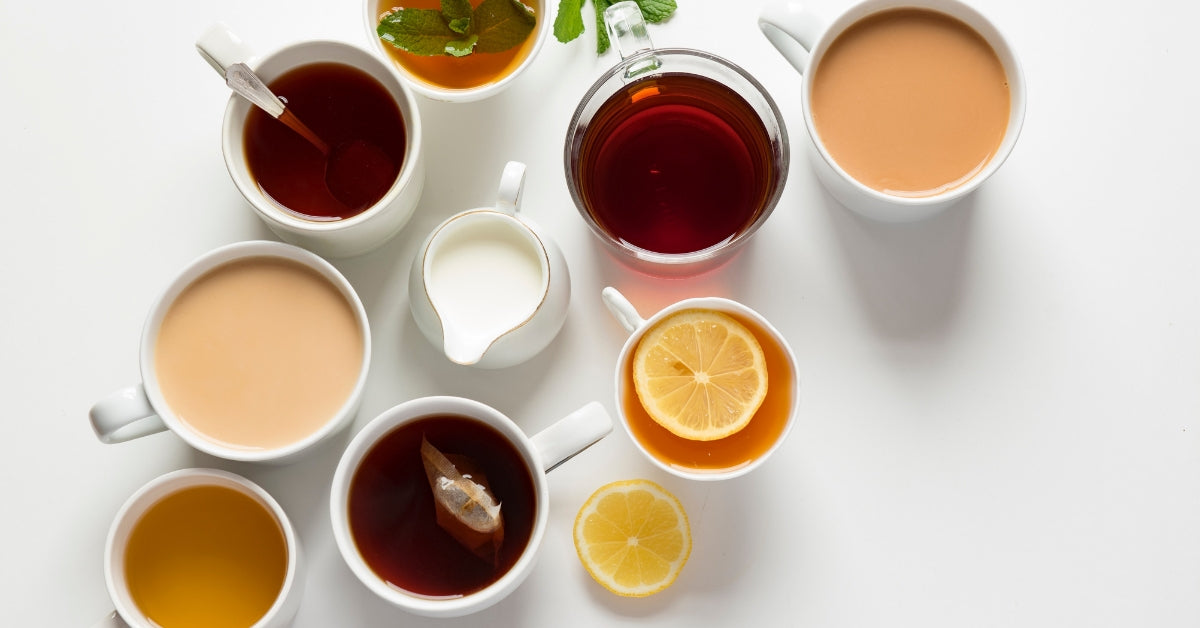We all have different reasons we drink tea. While some drink it to wind down, others drink it to perk up. Some may simply enjoy the warm, comforting qualities of this ancient beverage while others love to cool down with it on a summer afternoon. No matter what your reason is, understanding the amount of caffeine contained in your delicate teacup or monster mug will only enhance your experience and your relationship with tea. Read on to learn about the amount of caffeine in tea, what affects caffeine levels in tea and common caffeine myths.

Caffeine Amounts in Tea
No matter what you drink, there is no one-size-fits-all number for the amount of caffeine in your favourite type of tea. Caffeine levels in tea can be affected by how they are processed and brewed, but we’ll get into that later. Until then, you can rest easy knowing that our teas typically have between 40 and 60 milligrams of caffeine per cup with matcha teas and white teas taking first and second place in the “Most Caffeinated Tea” category. So, if you are looking for a tea to replace your morning joe, we suggest checking out our selection of white teas. If you are looking for a caffeine-free brew you’ll love our herbal teas.
What Affects Caffeine Levels in Tea?
The amount of caffeine present in tea can be affected by the way the tea is processed or brewed. For example, brewing teas in higher water temperature, for a longer period of time, or at a higher ratio of tea leaves to water will increase the amount of caffeine present in your tea. When in doubt, look at the tea grade. The tea grade can tell you a lot about the level of caffeine in your cup. Teas are placed in different tea grades or categories based on how broken or whole their leaves are. The more broken a leaf, the faster the caffeine will be released in water. Oftentimes, the tea leaves in teabags are very broken so they typically have higher levels of caffeine than their full leaf counterparts, when infused the same way.
If you enjoy drinking tea blends, be advised that these often contain less caffeine than non-blends because the tea leaves that are usually present in a non-blended tea have been replaced with fruits, herbs and spices.
Common Caffeine Myths
Enjoy this video where 3rd generation of Harney & Sons - Emeric Harney explains caffeine in further detail while busting a few myths!
